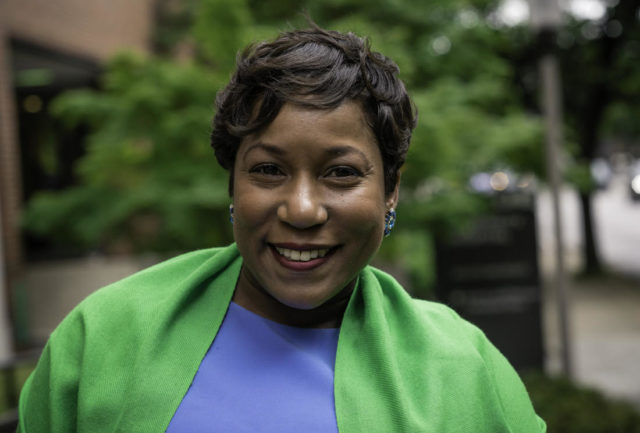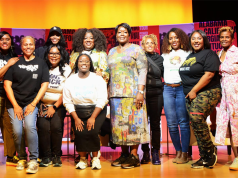By Haley Wilson
The Birmingham Times
Daagye Hendricks, president of the Birmingham Board of Education, spoke to The Birmingham Times about the upcoming fall semester, which starts on August 2 for Birmingham City Schools (BCS). She shared her thoughts about improvements made as a result of the COVID-19 pandemic, enrichment programs to prevent summer learning loss, and vaccinations for students. Here are some excerpts from the interview.
The Birmingham Times: There were a lot of challenges during the pandemic. What were some of the positives?
Daagye Hendricks: “When the pandemic hit, we, like many other school systems around the state and nationwide, had to make some really hard decisions. … We realized that we could look at it as a negative or turn it into an opportunity for improvement. When we received our [Coronavirus Aid, Relief, and Economic Security Act (CARES Act)] and the first part of our [Every Student Succeeds Act (ESSA)] funding distribution, we decided to alleviate some of the barriers created inherently by the pandemic. … BCS and the Board of Education, under the leadership of [BCS Superintendent Mark Sullivan, Ed.D.], decided to purchase $10 million worth of technology for students in our school system. Our babies and younger kids, elementary kids, they all got [tablet computers, such as iPads], or other technological units, [such as Chromebooks], they could use that were more geared toward their age group. … Every BCS student received a laptop or [a tablet].”
BT: What other challenges needed to be addressed?
Hendricks: “We realized that a lot of our students and a lot of the people in our communities didn’t have Wi-Fi access. The libraries were closed, so there was no opportunity or anywhere to go. … We invested in the One-to-One technology [movement, which aims to put an internet-enabled laptop, tablet, or smartphone into the hands of each student]. We also invested in an agreement with [telecommunications provider T-Mobile] to provide hotspots to every family. … I think it was the right thing to do for our students in terms of preparing them for the future.”
BT: This summer was notable in Birmingham schools because you took steps to vaccinate all students in seventh grade and beyond. Talk about that.
Hendricks: “We were recognized by the White House a couple of weeks ago because we’ve set up vaccination centers in our schools. The very first thing BCS did when we partnered with [the University of Alabama at Birmingham (UAB)] was to make sure our staff was among the first groups with the opportunity to get vaccinated early last year because we did not want to put them in harm’s way by bringing them into an unsafe environment. … We also put vaccination clinics in each of our area high schools, so we will continue to provide opportunities for everyone in our community.”
BT: Why were the summer enrichment programs so important?
Hendricks: “They’re critical, and we really went out of our way from a communication standpoint and from a school system perspective to make sure we were intentional about what we did to bridge that gap in learning and give the children additional opportunities for the summer enrichment. … The state of Alabama has changed some of the laws in terms of getting children up to a third-grade reading level (teachers are required by Alabama law to test the reading level of children K-3 at the beginning, middle and end of each school year) within a finite amount of time. With that being one of our requirements, the first thing we did was we got our teachers training to make sure they were completely equipped with what they needed to move the academic needle for children in those age groups. … We had summer enrichment [programs] for the younger kids that were directly related to reading and helping them bridge that gap. We’re starting to make academic decisions based on data. … So, for any students that may have fallen behind during this last year of the pandemic, we had special classes … to bridge the gap [and make up for what may have been lost] during that period.”
BT: What else was different about summer programming?
Hendricks: “We broke transportation barriers. We had never offered free transportation to our children [during the summer], so parents often had the burden getting them [to and from programs]. If you’re a single parent, you can’t get off work every day at one o’clock to pick up your child, right? … This year, we were able to offer transportation throughout the school system, so there was absolutely no reason for our children to not get the academic opportunity. We provided transportation, we extended the number of days [programs were available during] the week, and we extended the hours [programs were available during] the day to ensure that there was [nothing keeping] our babies from having great summer experiences. … We made myriad opportunities available.”





